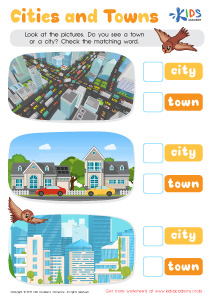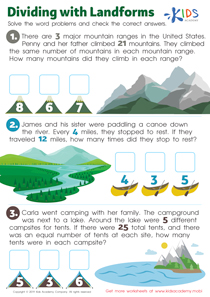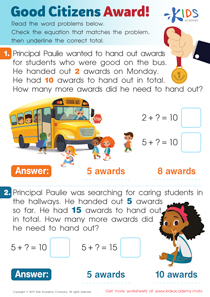Understanding patterns Grade 3 Social Studies Worksheets
4 filtered results
-
From - To
Explore our collection of Grade 3 Social Studies worksheets focused on understanding patterns! Designed specifically for third graders, these engaging activities help students identify, analyze, and apply patterns in various contexts. Our worksheets foster critical thinking while covering essential topics such as historical trends, geographic layouts, and cultural similarities. Each printable resource includes clear instructions and diverse exercises, making learning fun and interactive. Enhance your students' awareness of the world around them and develop essential analytical skills. Perfect for use in the classroom or as homework assignments, these comprehensive resources will support your teaching goals and keep young learners excited about social studies!
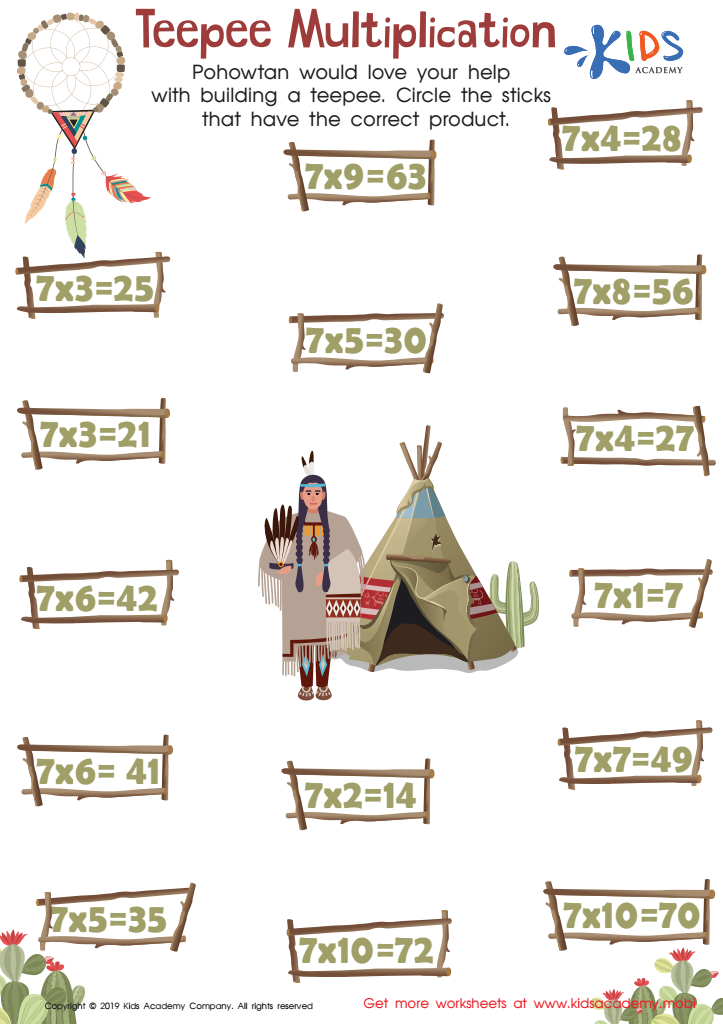

Teepee Multiplication Worksheet
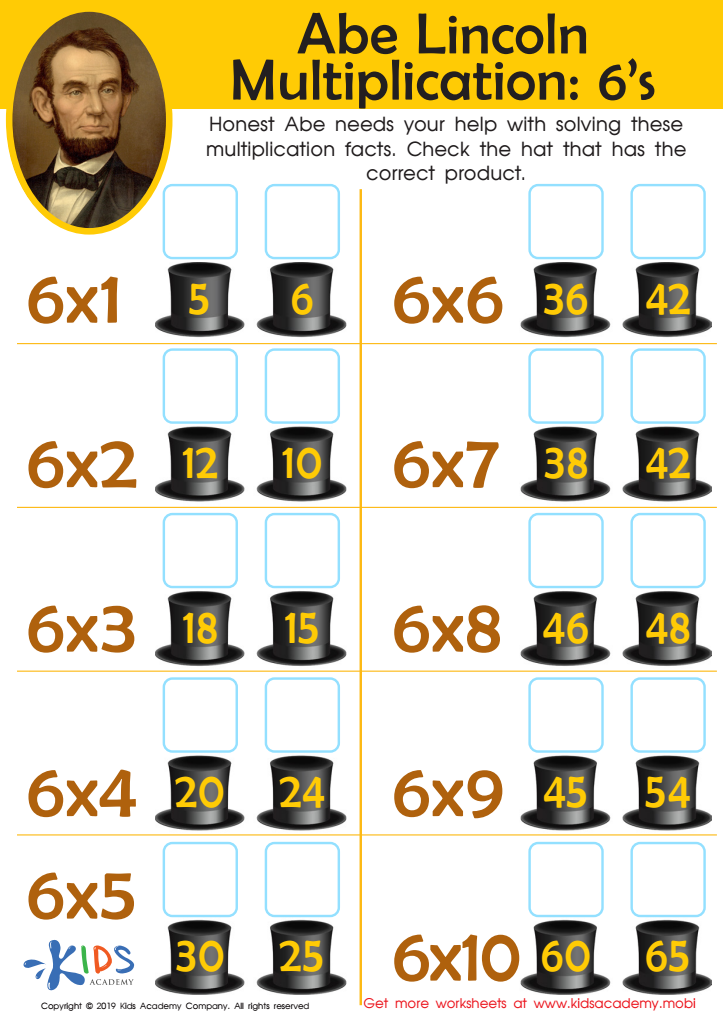

Abe Lincoln Multiplication: 6’s Worksheet
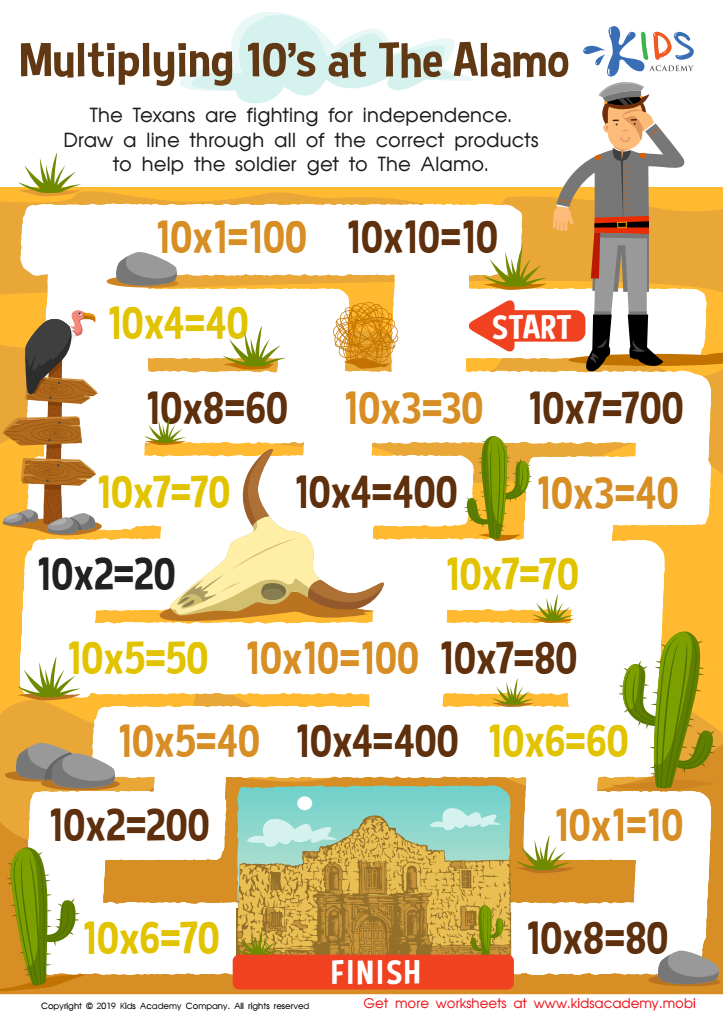

Multiplying 10’s at The Alamo Worksheet
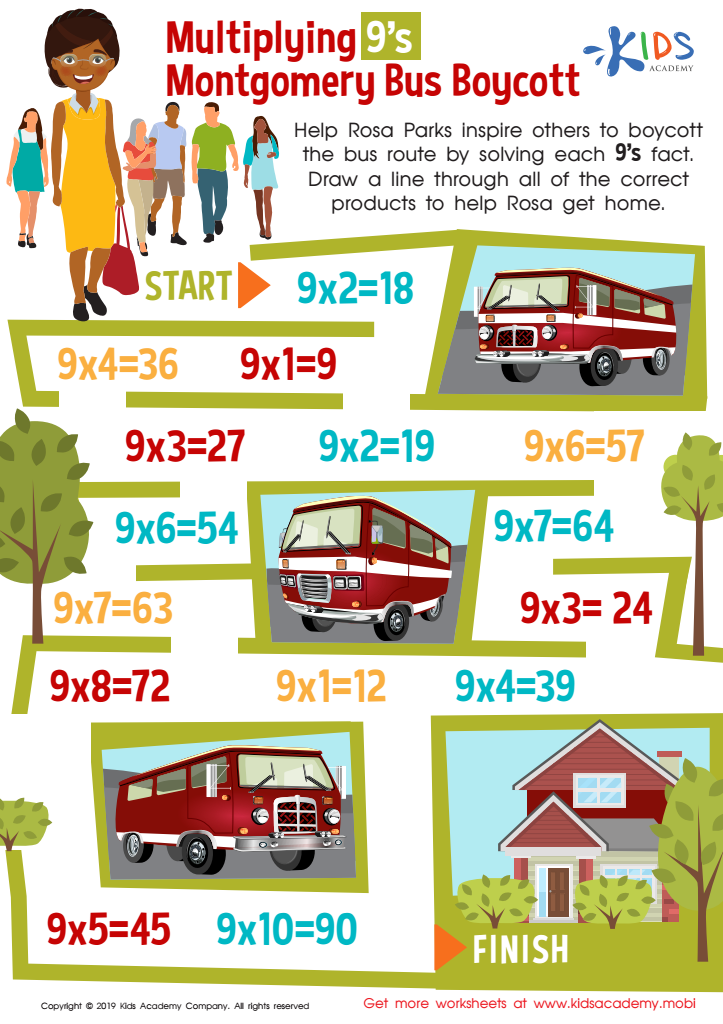

Multiplying 9’s Montgomery Bus Boycott Worksheet
Understanding patterns in Grade 3 Social Studies is crucial for both parents and teachers because it lays the groundwork for critical thinking and problem-solving skills. Patterns help students identify connections and relationships between historical events, societal structures, and geography. When children recognize these patterns, they can better comprehend the context behind events and understand how human behavior contributes to change over time.
Moreover, social studies education fosters civic awareness, and understanding patterns helps students grasp the importance of history in shaping the present and future. Teachers can utilize this comprehension to teach children about cultural diversity, political systems, and economic principles, creating a well-rounded perspective.
For parents, supporting their child’s understanding of patterns enhances engagement in discussions about local and global issues, encouraging them to think analytically.
Furthermore, an emphasis on patterns can facilitate a sense of community and empathy by allowing students to appreciate past experiences and the lessons they carry. This foundation cultivates informed citizens who are aware of their roles within society. Thus, engaging with patterns in social studies not only enriches individual learning experiences but also promotes a deeper appreciation for relationships within our world.
 Assign to My Students
Assign to My Students












